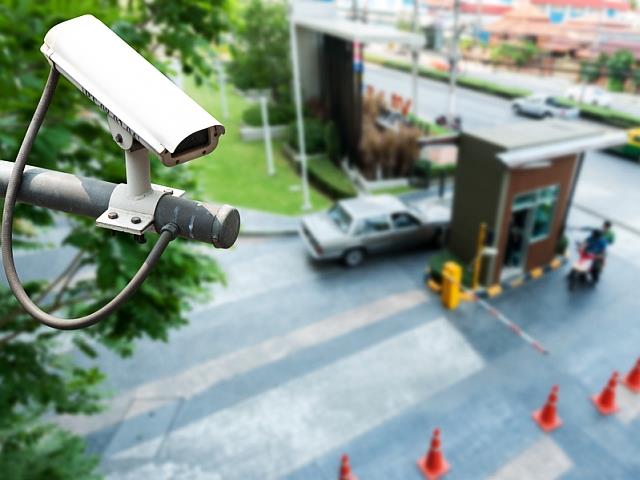Personal safety and physical security are vital when choosing a home, and even more so when you happen to be a single woman. This security advice is important to note.

"Our homes are not merely bricks and mortar; they are our sanctuaries, where we raise our children, celebrate milestones and make memories. They also contain our most prized possessions, some of which are irreplaceable so we must create a secure environment in which our families can feel safe, says Arnold Maritz, Co-principal for Lew Geffen Sotheby’s International Realty in Cape Town’s Southern Suburbs, False Bay and Noordhoek.
"However, properly securing one’s home is often easier said than done. "There is not only a daunting choice of products available but also a number of essential precautionary measures to implement."
There are several key factors to take into account. “First, you need to establish where the weak points are by walking through the entire property, including the perimeter. You must also take into account your family’s lifestyle and determine which security features would be most convenient and which would hamper your daily lives," says Maritz.
SEE: Is a burglar alarm enough? Security tips to protect your home
Living on an estate or in a complex can give residents the false impression that security is not a priority, but crime trends over the last 12 months have shown an increasing number of incidents in secure complexes and estates which have raised a red flag and prompted many estate complexes to review their security options.
Charnel Hattingh, Head of Marketing & Communications at the Fidelity Services Group, says even in a secured complex there is always a risk of burglaries and theft from inside and outside the complex and this is why many estates are now combining guarding options and electrified barriers with more high tech solutions like drones. The company recently deployed drones to residential estates across parts of Gauteng province.
Hattingh says drones will never replace manpower or electrified barriers, even in eco estates where green strips preclude traditional fencing.
For maximum effectiveness, the command centre is linked to a tactical response unit for both reactive and proactive purposes. Customers contact a call centre to activate the drone response and on sites where Fidelity already provides guarding, the drone response will be worked into the incident escalation procedure.
“We believe drones and the deployment of a mobile drone team, not only act as a highly effective visible deterrent to criminals, but also assist to immediately track down and locate criminal elements once an outer perimeter on an estate has been breached, or in any scenario where suspects are at large on a security estate,” says Hattingh.
READ: How to avoid safety and security risks during loadshedding
She says the deployment is ideally suited to security estates and will increase proactive crime prevention and the ability to plan crime prevention operations. It will also facilitate a more rapid response to live criminal incidents and scenes.
“These high tech innovations definitely represent the future face of security, but as stressed earlier, they work best if they are combined with an integrated security offering.”
Complexes often become vulnerable when they are not fully let or where construction workers are still present.
“If you are in a complex like this it is advisable to try and make sure you are part of the security contingency planning, conducting regular security drills and monitoring of security systems. We highly recommend that residents have alarms and other security measures in place in their individual units. It is not uncommon to hear of cases where criminals have moved into complexes posing as residents and then break into houses before moving out with their stolen goods,” she says.
Here are a couple of security hints for owners to keep in mind:
1. Access control is a key component of the security solution
Having a guard that mans the gate and is also expected to patrol is an issue. “The entrance should be manned at all times, even if residents have their own access cards. The guard also needs to be able to alert a reaction company if security is under threat or assistance is needed. This is where drone patrolling links in well,” says Hattingh.
2. The security systems can be nullified when there is little or no provision for the safety of guards on duty.
“An increasing criminal modus operandi is to observe the guard and then hold him at gunpoint allowing the criminals to enter the complex at leisure. Guard room windows are mostly never bullet proof or even tinted to ensure that the movement of the guard cannot be monitored from outside the complex.”
3. Security is sometimes compromised for aesthetics
“In our experience, we’ve found that often body corporates are shocked when a security specialist points out vulnerable areas in the complex’s security. It makes sense to have a security specialist involved from the get-go if possible or to do a thorough assessment before security is installed or upgraded, notes Hattingh.
“Security at complexes is now becoming far more specialised and complex’s security must provide comprehensive security services that include technical support and pro-active planning.”
Want all the latest property news and curated hot property listings sent directly to your inbox? Register for Property24’s Hot Properties, Lifestyle and Weekly Property Trends newsletters or follow us on Twitter, Instagram or Facebook.








